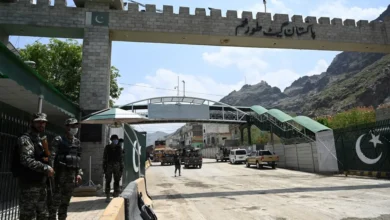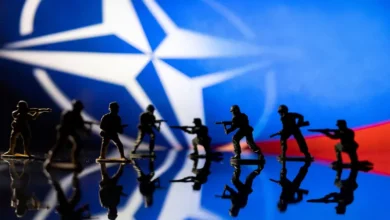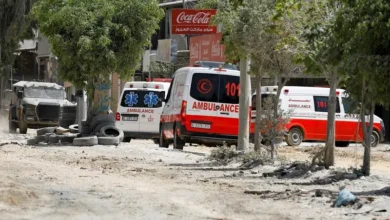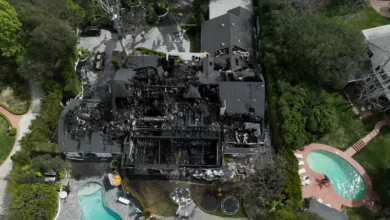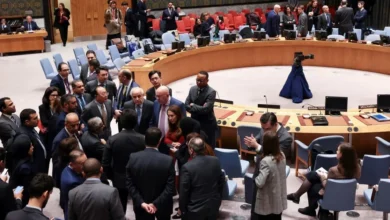Israeli battalion facing potential US sanctions has history of abuses
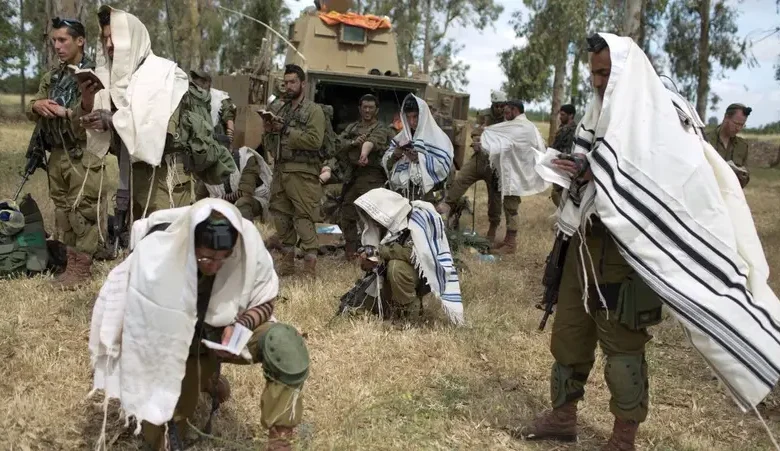
An Israeli battalion which US media say Washington is likely to sanction over alleged rights violations against Palestinians, has a long history of transgressions and impunity, according to analysts and Israeli media.
The military’s Netzah Yehuda unit was founded in 1999 to encourage ultra-Orthodox Jewish men to enlist but has since accepted other religious recruits including residents of Israeli settlements in the occupied West Bank, where Netzah Yehuda was deployed until 2022.
Since the creation of Israel in 1948, the ultra-Orthodox community has been largely exempt from military service that is otherwise compulsory for most young Israelis — a disparity increasingly criticized domestically since the start of the ongoing war with Hamas in the Gaza Strip.
Netzah Yehuda guarantees ultra-Orthodox recruits they would serve in line with their practices, which include a strict kosher diet, total separation from women and alloted time for prayer and religious studies.
The unit has mainly attracted marginalized ultra-Orthodox youths “who see the army as a means of integrating into Israeli society and earning a living,” said David Khalfa of Jean-Jaures Foundation, a French think tank.
But it has also drawn “rather radical religious nationalists having strong hostility towards Arabs,” he told AFP.
“Marked by a strong ideological and sociological leaning, the battalion has acquired a scandal-prone reputation.”
Marwa Maziad, a visiting lecturer of Israel studies at the US University of Maryland, told the Middle East Eye website that unlike most army units, Netzah Yehuda relies on volunteers.
She said “the battalion attracts religious Zionists, who combine Jewish religious interpretations with nationalist militarism” and are closely associated with the extreme fringes of the Israeli settler movement.
The West Bank, which Israel has occupied since 1967, is home to three million Palestinians alongside some 490,000 Israelis living in settlements considered illegal under international law.
“A large part of the unit’s soldiers were born and raised in the West Bank,” Khalfa said, noting Netzah Yehuda was often tasked with policing and “counter-insurgency” operations in the Palestinian territory.
“A significant number of them — not all — committed abuses and the army hardly imposed any sanctions,” Khalfa said.
Responding to “reports regarding sanctions” against Netzah Yehuda, the Israeli military defended its troops in a recent statement.
“The battalion is professionally and bravely conducting operations in accordance to the IDF (Israeli Defense Force) code of ethics and with full commitment to international law,” it said.
‘Nationalist ideology’
The January 2022 death of Palestinian-American Omar Assad, 78, at the hands of Netzah Yehuda soldiers in the West Bank drew attention to the unit, with the US State Department later that year ordering embassy staff in Israel to investigate the case.
Handcuffed, gagged and blindfolded, Assad was left lying on the ground on his stomach for more than an hour in a freezing winter night.
Following Assad’s death, several Israeli media outlets published reports detailing incidents linked to the battalion that had gone largely unpunished, including beatings of Palestinians and attacks on Bedouin citizens of Israel.
The Jerusalem Post newspaper said Netzah Yehuda troops effectively allowed settlers to attack Palestinians, while Haaretz, a left-leaning daily, denounced the “clear ideological connection between the residents of the settlements and the unauthorised outposts and the soldiers” in the unit.
According to Khalfa, “within the army there are lively debates” over Netzah Yehuda, with some military officials considering it “dangerous for the army to bring together so many young people sharing the same nationalist ideology”.
As the United States — Israel’s close ally and top provider of military assistance — probed Assad’s death, the battalion was transferred to the annexed Golan Heights.
But since the Israel-Hamas war began on October 7, Netzah Yehuda has been redeployed to the West Bank and also sent into Gaza.
Khalfa said that “what leads the United States to consider sanctions against Netzah Yehuda is the sense of impunity” the unit benefits from.
The battalion’s return to the West Bank “has again given rise to behavioural problems,” he said.

